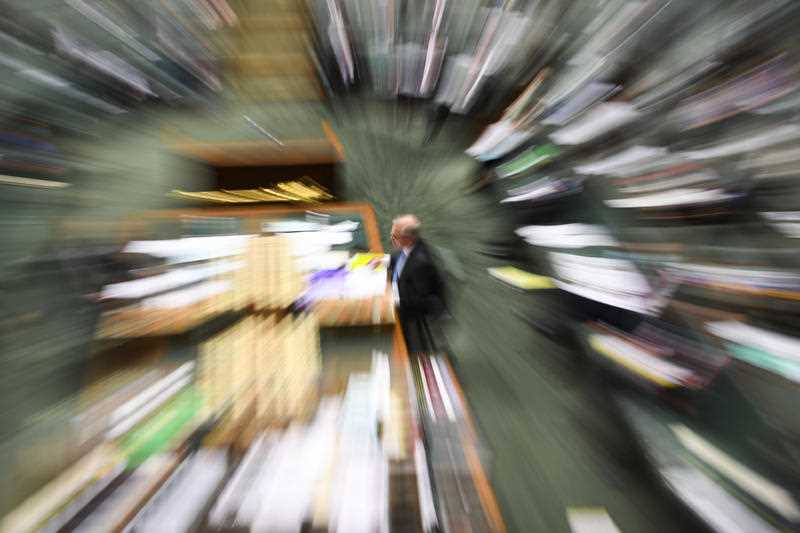Federal parliament will sit on Monday with about a third of all members and senators present and COVID-19 spreading across the national capital.
It is expected the Senate chamber will be more than half-empty while fewer than 50 of 151 MPs will sit in the House of Representatives, under tight health rules including masks and distancing and a ban on public entry.
Nurses will undertake temperature testing at all entrances of Parliament House.
Labor will seek to keep the pressure on the government over the slower-than-expected vaccine rollout and continued growth in virus cases.
But Prime Minister Scott Morrison is growing increasingly confident the 80 per cent target can be reached before the end of the year, allowing greater public freedom and fewer restrictions on business.
The merit of Australia’s 20-year mission in Afghanistan is expected to be debated in the lower house on Monday.
The government has prioritised national security laws, disability support reform and changes to the way elections are run on its legislation program.
With an election expected in early 2022, the Liberal-National coalition wants to change the rules to impose a fixed pre-poll period of up to 12 days before an election.
It will cramp the style of many Australian voters who have been making the most of looser arrangements around casting a ballot before election day.
Another change opposed by so-called micro-parties is increasing the number of members required to register a political party from 500 to 1500.
The same bill will also tighten rules around the registration of party names which replicate a word in the name of an existing registered party.
It will effectively stamp out the practice of registering a party using the word Liberal or Labor in its title, such as Liberals for Climate.
Charities and community groups have expressed concern over another change, to reduce the amount of “electoral expenditure” an individual or organisation can spend before they are required to register as a political campaigner.
This amount will decrease from the current $500,000 to $100,000 during the financial year, or for any of the previous three financial years.
The government argues it will bring groups closer in line with the transparency imposed on political parties, candidates and MPs.
But charities say they are not like parties and the move would effectively silence community voices.
A further change will provide for a jail term of up to three years for “interference with political liberty”, such as violence, property damage, harassment or stalking in relation to an election.
By Paul Osborne in Canberra, AAP



